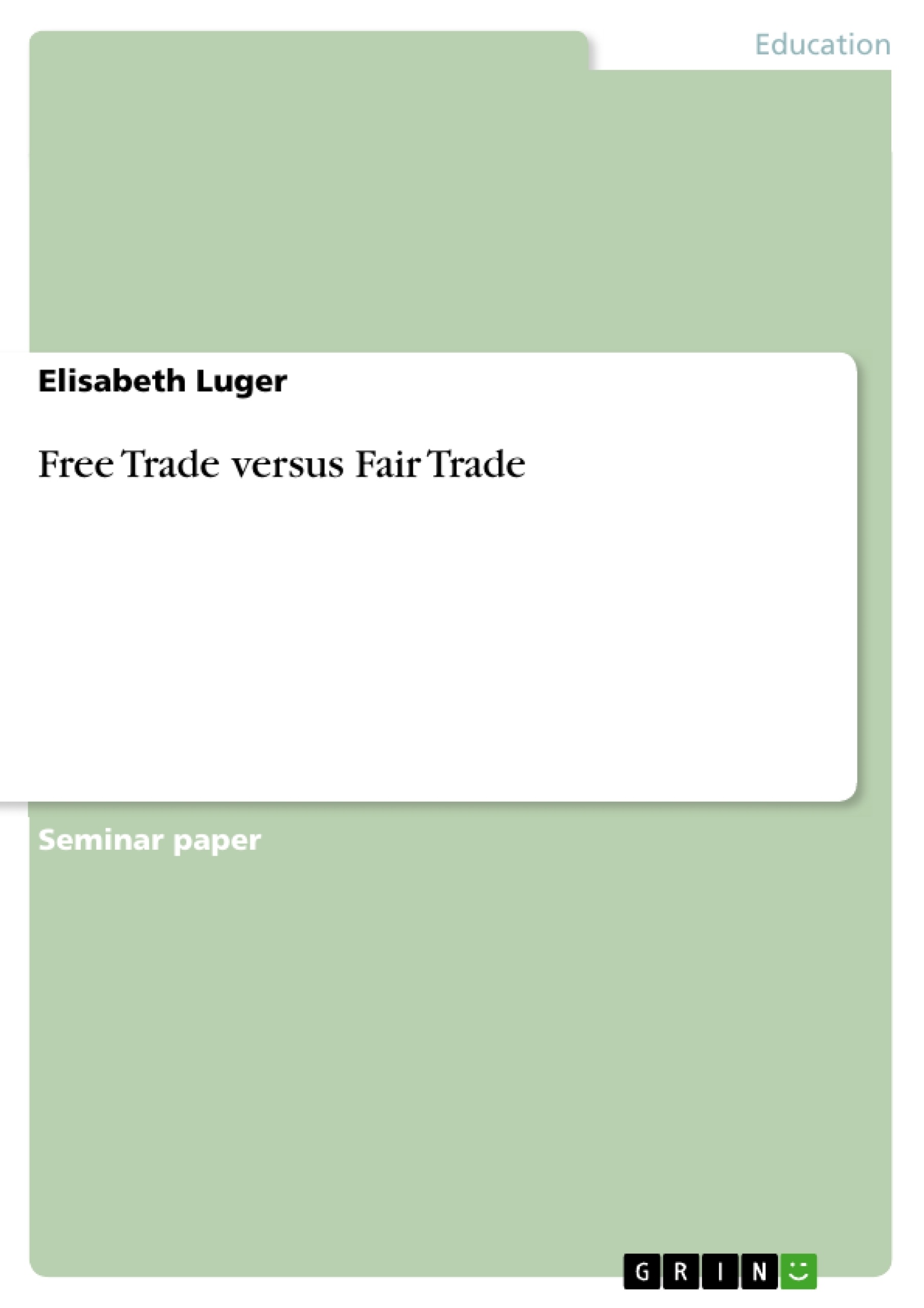The mercantilist idea was already represented by the rulers of the 18th century and is still gaining more and more popularity in our times. With the signing of the first free-trade treaty in 1860 between the UK and France (Mègrelis, 1978, p.15) these two countries set the starting point for tendencies towards barriers surrounding the industrialized nations. The broad hypothesis underpinning this article is “ Most of the problems concerning free trade only exist due to the fact, that protectionist barriers set up by Northern countries still disturb an actual free trade system.”
Basically free trade has to lead to international division of labour and therefore to interdependence between countries. According Kohlehammer (1993), a defender of the free trade concept, “national customers can gain from it by choosing the cheapest products from all over the world” (p.45). According to this view the foreign supplier can increase in turnover and is able to expand the production. Due to the fact that foreign producers use a part of their proceeds on imports from their customers' countries, they also promote the domestic economy. Exports should be supported as they mean more jobs to the exporting country.
What happens is that all countries try to follow the same idea of reducing their imports and maximising their exports. Blanchard (1997) describes that a too high number of imports from foreign countries endangers domestic jobs and is therefore controlled through customs duties and other trade barriers. (pp.243-245) If customers could decide between domestic and imported products, some domestic suppliers would not be competitive anymore and would not be able to sell their products, because they either are too expensive or of low-quality. They would only be able to survive, if they lowered their costs of production with no consideration for social and economical losses.
Table of Contents
- Abstract
- 1. Global Free Trade and its obstacles
- 2. Trade not Aid
- 3. Fair Trade: Only a PR Initiative of the First World
- Conclusion
- Bibliography
- Keywords
Objectives and Key Themes
This article explores the question of whether global free trade should be expanded or if protectionist measures, often referred to as fair trade, are a more suitable approach. The author argues that despite potential unintended side effects, free trade is the preferred method for achieving economic and social development. The article identifies problem areas associated with free trade and proposes suggestions aimed at increasing awareness of the system's impact on developing countries.
- The role of free trade in economic and social development
- The impact of protectionist measures on global trade
- The potential benefits and drawbacks of free trade for developing countries
- The limitations and effectiveness of fair trade initiatives
- The need for a more sustainable and equitable global trade system
Chapter Summaries
- 1. Global Free Trade and its obstacles: This chapter delves into the historical context of free trade, tracing its origins back to the 18th century. It highlights the mercantilist idea of promoting domestic production and reducing imports, and examines how protectionist barriers erected by developed nations continue to hinder a truly free trade system. The chapter emphasizes the potential benefits of free trade for both consumers and producers, while acknowledging the concerns surrounding competition and the need for fair trade practices.
- 2. Trade not Aid: This chapter explores the concept of fair trade and its role in fostering development in developing countries. It contrasts fair trade with traditional development assistance, arguing that fair trade offers a more sustainable approach by empowering producers to achieve better prices for their products. The chapter examines the market share of fair trade products in Europe, highlighting the need for increased efforts to promote fair trade practices.
Keywords
This article explores the key concepts of free trade, fair trade, protectionism, economic development, developing countries, and trade barriers. The author focuses on the impact of these concepts on global trade dynamics and their implications for both developed and developing nations.
Frequently Asked Questions
What is the core argument regarding global free trade?
The article argues that free trade is the most effective method for social and economic development, but its success is often hindered by protectionist barriers from developed nations.
What is the difference between "Free Trade" and "Fair Trade" in this context?
Free trade focuses on removing barriers and international division of labor, while fair trade is often viewed here as a strategy to empower producers in developing countries through better pricing.
How do protectionist barriers affect developing countries?
Protectionist measures like customs duties in Northern countries disturb the free trade system and prevent foreign suppliers from expanding their production and turnover.
What are the potential drawbacks of unrestricted free trade?
Unrestricted imports can endanger domestic jobs if local suppliers cannot compete on price or quality, potentially leading to social and economic losses.
What does "Trade not Aid" signify?
It suggests that sustainable economic development is better achieved through equitable trade opportunities rather than through traditional financial assistance or aid programs.
- Quote paper
- Elisabeth Luger (Author), 2003, Free Trade versus Fair Trade, Munich, GRIN Verlag, https://www.grin.com/document/14032



